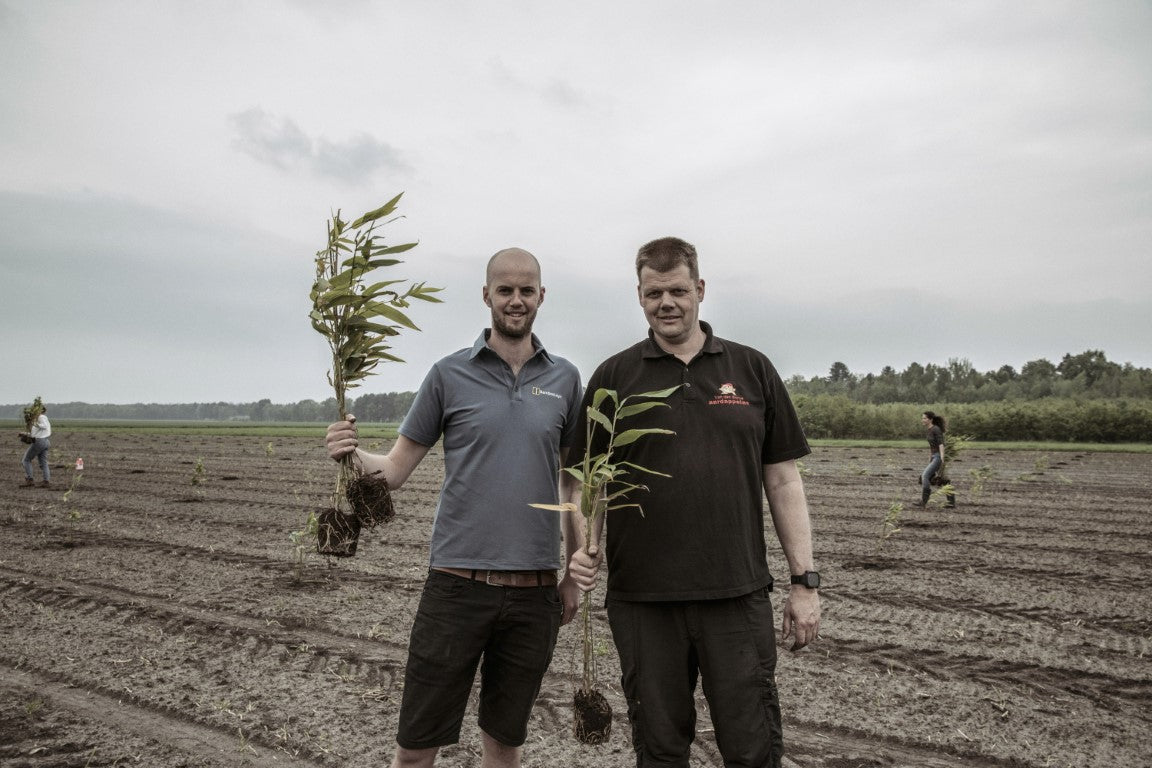
Support Jacob Van den Borne
Carbon removal through European bamboo fields

Co-benefits SDGs

Status:ONCRA Verified
Validation Number:BBL-L-C004
TRL:9
First Issue (vintage):2023
To order over 50 Credits, pleasecontact us.
Description
Bamboo is the fastest growing grass, with a very high level ofCO2 sequestration and oxygen production. It rapidly sequesters carbon in biomass and soil; it removes it from the air faster than almost any other plant. Long-lived bamboo products also store a lot of carbon. Therefore, bamboo is an ideal tool to achieve net-zero emission targets and fits within the European Green Deal.
Bamboo is not only a very efficient plant in terms ofCO2 sequestration, it also removes large amounts of nitrate from the soil, retains water in the soil, prevents erosion and regenerates the soil. Bamboo only needs to be planted once for the next 60 to 100 years. After it is pruned or harvested, it grows back very quickly, making bamboo one of the fastest renewable resources. In each new growing season, the bamboo plants grow larger, thus sequestering moreCO2.
Bamboologic's carbon strategy is based on prescribed guidelines for the bamboo industry.
About The Remover
Christophe and Philipe are farmers in the commune of Soual, in the south of France. As large-scale farmers from the Tarn region, they are keen to diversify into new farming models. They combine their existing crop expertise with bamboo cultivation to improve breeding results. They are also convinced of the positive effects for carbon cultivation and are open to our methodology to improve carbon storage.
Bamboologic installs bamboo farms in Europe and sells the raw bamboo or the primary processed bamboo as a basic material for the production of sustainable alternatives to hardwood, steel, PVC, composite materials and cotton. Europe is the largest export market for bamboo products. There are so many obvious sustainability reasons to supply bamboo from Europe for the European market.
Bamboo is a zero-waste crop and a sustainable alternative to many industrially used raw materials in more than 10,000 different products. Bamboo thrives very well on degraded land and regenerates the soil in good condition. Taking into account that about a third of all European farmland is degraded, bamboo can play an important role in Europe's agricultural and green future.
Because bamboo holds a lot of water in the soil, allows other vegetation to thrive and has evergreen leaves, it is a welcome habitat for many animals and insects.
This bamboo farm is located on the farm of Philippe Campos near Toulouse, France.
Website
www.bamboologic.eu
Vendor Information
- Shop name: Bamboologic
- Seller Bamboologic
- Address: Sint Hubertusstraat 10
HAL 2
6531 LB Nijmegen
Additional benefits
- Locally grown: short chain & availability of product, avoidance of heavy overseas transportation.
- New sustainable industry within one of the largest bamboo markets.
- Sustainable alternative to tropical hardwood, PVC, steel, cotton and composite materials
- Restoration of degraded land and revival of EU agricultural sector
- Bamboo fields are excellent carbon removers on a natural basis
- Low footprint, high impact; contributes to 8 SDGs
- SDG2 - Hunger Zero
Harvesting the edible bamboo shoots is an important part of managing the bamboo fields and promoting healthy plant growth. But bamboo shoots are also a common ingredient in many South and East Asian dishes; although they are a byproduct of bamboo production, they provide the largest revenue stream within the bamboo industry. - SDG8 - Decent work and economic growth
We at BambooLogic believe that bamboo fields and all industries involved in production, processing and sales have the potential to revitalize the European agricultural sector. We want to help build a thriving bamboo industry that supports research and development. By targeting areas with difficult agricultural conditions, such as Portuguese degraded land, we create jobs that can boost the region's economy and encourage young people to return to their communities. - SDG9- Industrial Infrastructure and Innovation
BambooLogic's business model is designed to emphasize circularity, inclusiveness and innovation. In addition to the more familiar uses of bamboo, such as construction and paper products, bamboo fibers and wood offer excellent alternatives to hardwoods and high-tech composites. BambooLogic partners with universities, research centers and other innovative companies to create a dynamic research environment for the advancement of bamboo innovation. In collaboration with these groups, BambooLogic is working to unlock the true potential of bamboo to develop new, relevant and exciting ways to use this amazing plant. - SDG 11- Sustainable cities and communities
In many regions of Asia, bamboo is widely recognized as a sustainable material for urban development. From construction poles to sewage pipes, scaffolding and composite materials, bamboo is being used in many ways to make urban communities more sustainable and fits perfectly with the principles of the circular economy. Bamboo can also serve as a plant in and around cities, offering benefits such as carbon sequestration and oxygen production that surpass those of traditional crops or trees. Moreover, bamboo is a natural soil conditioner that can help prevent soil erosion.

